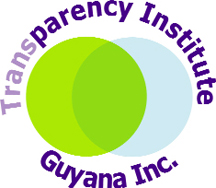The son of a high ranking member of the political directorate has just fatally hit a child on her way to school at a busy city intersection. The politician calls an old high school friend, now a senior command officer within the upper echelons of the Guyana Police Force, for a favour.

And so the politician’s son makes station bail, maybe even before arriving at the police station, and his car, which was impounded, is released within the hour. And maybe the traffic rank at the scene soon develops a peculiar case of selective amnesia—he scarcely remembers the details of the accident, his notes suddenly can’t be found—and promises by the police to take statements from witnesses are to no avail. And even if the matter does make it to court, maybe the case file goes missing and eventually the charges are dismissed. And the girl—her parents of ordinary, humble means, with no old friends within the power structure to reshape the course of justice—becomes just another statistic.
All those “maybes” may sound implausible, but strikingly similar stories are told ever so often by ordinary men and women, who have had their lives torn apart by harrowing incidents that involve influential members of society.
Maybe you’ve never been directly affected by such a situation, but there is a good chance that you know of someone, some family that has confronted the scourge that has taken hold of our society, the debilitating and endemic corruption that has woven itself into our cultural fabric and is evident in almost every sphere of public life.
Now, it seems, all you need is a ‘friend’ with a sufficient degree of influence to make things happen. One phone call is all it takes and it is possible for you to avoid facing the lawful penalty for crimes. Ours is a culture that idolises power and the wielders of power, a culture where the indiscriminate use of power and political excesses has over time become an almost accepted convention with no pretence, and no fear of official sanction or reprimand.
Indeed, chances are, if you even attempt to swim against the tide, you run the risk of incurring the wrath and fury of the political directorate, which, as we have witnessed time and time again, can result in political ostracisation, demonisation, and ridicule.
Against this backdrop, apathy runs deep. Why should we even bother to challenge the status quo? Nothing is going to come of our cries for fairness, equality and redress in the face of wanton lawlessness, right? But if it has never occurred to you, stop and think about it for a minute: sitting on the sidelines actually helps to fuel corruption and abuses of power. Your inaction, your silence, amounts to tacit approval of the malignant cancer that deprives each one of us of the opportunity to rise above the excesses of the privileged few amongst us, who have arrogated onto themselves a heightened degree of invincibility, accountable to no one, not even those they were elected/appointed to serve.
How do we confront this cancer and rid our society of it? Perhaps developing an understanding of what constitutes corruption and abuse of power would be in order, though it may seem inconceivable and unimaginable that there are still those among us who need a tutorial in detecting such abuse.
The real litmus test comes with speaking out and not just when you’re directly affected by a problem that is similar or even relatively close, albeit in an altogether different context, to the narrative we outlined earlier.
It is human nature that we often take for granted that we won’t be affected by other people’s predicaments until they are visited upon us. But why wait for such an eventuality to occur? We need to raise our voices in unison against all forms of abuses of power, from policemen turning the other way as with in anecdote above to the award of government contracts to fly-by-night ‘contractors’ whose only experience building anything is in the careful construction of their credentials.
It would be remiss of us to suggest that speaking out does not have its attendant pitfalls, but unless we adopt a fearless and unshakeable stance, we will continue to implicitly approve of every single instance of corruption, every single instance where the hallowed halls of justice only serve the needs and interests of the rich and powerful, every single instance where corrupt politicians make decisions that serve their own narrow self-interest and that of their family and friends.
Inaction is not an option. We ought to be confronting those who deliberately attempt to keep us in a perpetual state of servitude and ignorance. Regaining some semblance of decency and dignity in public life is not as impossible as it seems, but it starts with sustained public agitation, holding those elected to serve accountable and to a higher standard.
Acceptance of the status quo has for too long rendered us meek and unaware of what obtains beyond the pale. We have come to assume that wild, unimaginable excesses are in fact a way of life.
We see transgressions as permissible, even excusable, as a given right that comes with authority/title/status. Indeed, all this amounts to is contempt for all of us by a privileged few, who will stop at nothing to maintain their deeply entrenched positions.
It is time that we demand more of our public officers. It is time that we challenge the status quo. We must not still our voices. To do so would be at our own peril and that of our children.





